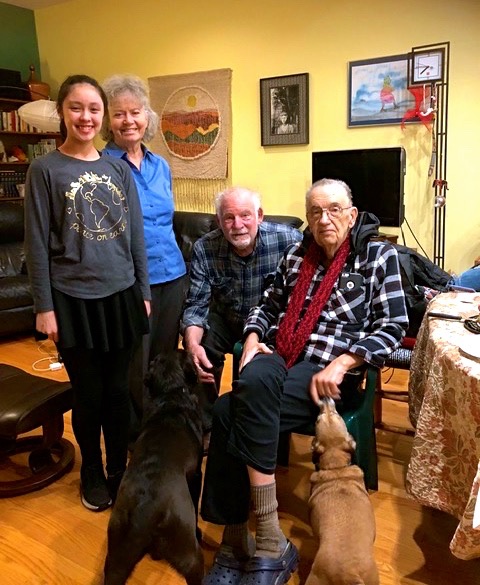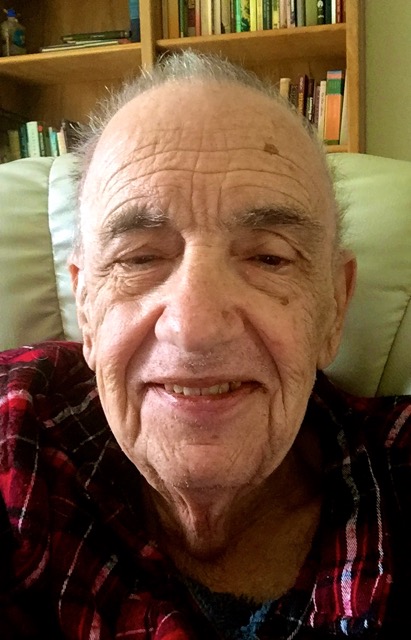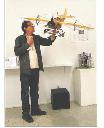“What happens, stays happened.”
Pratchett, Terry. Thief of Time: A Novel of Discworld (p. 298). HarperCollins.
A few days ago, it rained. Unlike the usual mist that often passes for rain here in the Enchanted Forest, actual raindrops fell in our backyard with distinctive splashes. Of course, one could comfortably walk between the drops, but it was indeed genuine rain. The rain was accompanied by two flashes of lightning and some rumbles of thunder. Naida was startled by the storm’s fury, while I, on the other hand, was a bit disappointed that the so-called storm was not accompanied by the earth-shattering cracks of thunder and lightning that used to shred the sky of my youth. Like most old-timers, I miss the good old days.
The worst of my cold or flu seems to have passed, leaving me with just an occasional cough. Naida also appears to be improving, but it seems she’ll need another week or two before it completely subsides. Meanwhile, the news as we enter the holiday season indicates that we are faced with two proxy wars. Vladimir Putin seems to be achieving victory through subterfuge in what he couldn’t win on the battlefield, and the Earth appears to be trying to punish humanity for the damage it has inflicted on the biosphere. It’s the same old story, but as they say, “tomorrow is another day,” and at my age, frankly, I don’t give a damn.
Today is Wednesday, another dark day with wet ground and a grim, grey sky. I’m trying hard to be upbeat, but I must admit, I prefer being a bit grumpy; it suits me better.
It is now Friday afternoon, and I can’t recall what happened on Thursday. However, it’s of no great consequence. In my experience, Thursdays hold little to recommend them, except for the fact that they precede Fridays, when you start pondering your weekend plans. That is, of course, until you retire. Once you retire, every day feels like a Friday, and you find yourself wondering what maladies you will be forced to put up with in the next few days.
Last night, I couldn’t sleep, so I decided to get up around 2:30 AM and dive into the Christmas present George sent me. It’s a book by Christopher Brookmyre titled “Quite Ugly One Morning.” It’s a mystery novel that falls in the tradition of Carl Hiassen, Caim McDonnell, and Declan Burke—slightly over the top and genuinely amusing.
[Y]ou don’t need a southern accent and a pick-up truck to be a redneck. You also don’t need a brain to be a gun-owner.
Brookmyre, Christopher. Quite Ugly One Morning (p. 58). Grove Atlantic.
I read the book until 5 AM before finally returning to sleep. I woke up around noon, and my first order of business was to schedule Naida’s doctor’s appointment and set up one for myself as well. Afterward, I indulged in my customary late afternoon nap.
While I was napping, Naida took the dog for an extended walk, and she didn’t return until well after dark. I couldn’t help but worry about how this might affect her illness. On the other hand, I know that some exercise is always beneficial, advice that I should probably take to heart. She came back, panting and coughing quite a bit.
Couldn’t sleep again that night. Resumed reading the book until four in the morning. There was an interesting riff on surgeons and their psychopathology.
It is now Saturday December 23rd two days before Christmas. Today is Festivus a made-up holiday from the television show Seinfeld that has become an actual holiday for some. Here are the five rules or components of celebrating Festivus:
The Festivus Pole: Instead of a decorated Christmas tree, Festivus is symbolized by an unadorned aluminum pole. It’s meant to be a stark contrast to the commercialism of the holiday season.
The Airing of Grievances: During the Festivus dinner, participants take turns airing their grievances and complaints about each other. This is an opportunity to express any grievances or annoyances from the past year.
The Feats of Strength: After the Airing of Grievances, the head of the household challenges one of the guests to a physical feat of strength. Festivus is not considered over until the head of the household is pinned in a wrestling match.
The Festivus Dinner: Like many holidays, Festivus includes a family dinner.
Festivus Miracles: Participants may also keep an eye out for “Festivus miracles,” which are seemingly random, everyday occurrences that are seen as special during Festivus.
I hope you all enjoyed your Festivus. It is also NATIONAL PFEFFERNUSSE DAY in Germany where the celebrate pfeffernüsse a fluffy cookie made with ground nuts and spices and covered in powdered sugar. It is also National Roots Day when families are encourage to delve into their family history, heritage, and ancestry.
Christmas Eve once again, and I found myself immersed in a night of reading. There’s something special about being alone in the dark and engrossed in a novel that brings a unique depth to your life experiences. However, the downside is that you often miss out on the early morning hours. But, at my age, mornings aren’t the most exciting part of the day. Nevertheless, there’s nothing quite as delightful as a cup of coffee and a toasted bagel with cream cheese and gravlax, whether it’s at 7:30 AM or noon. The key is to savor it when you’re fully awake.
As for the book, I was transported to Edinburgh, Scotland. The hero emerged victorious, although not without a fair share of bloodshed – and yes, some passionate moments too, though not nearly as much as the blood. It was merely hinted at as the bedroom door closed on the hero and the aging ingenue in the final sentence of the novel. It was indeed a fantastic way to spend the hours from midnight to 3 AM on Christmas Eve in 2023.
Later, I took the dog for a walk. It marked the first time in over three weeks that I was able to complete our walk without needing to rest on every bench we passed. When we’re younger and recover from an illness, we often eagerly return to our routines. However, at my age, we simply realize that we’ve just grown older and and still waiting to see what happens next.
Tomorrow Christmas Day will be quiet one for Naida and me. Many of her family with whom we usually spend the holiday with are down with COVID or one of the flu varieties ravaging the country.
Christmas morning began with me waking up to Naida announcing, “I’ve steamed your bagels. They seemed hard, so I steamed them.” This Christmas story will undoubtedly be remembered for both its fame and infamy. It achieved fame because it serves as proof that in life, there’s always something unexpected. As for its infamy, well, have you ever tried to toast a soggy bagel?
After our bagel breakfast, Naida and I discussed how we would distribute Christmas presents to her family. This was a significant question, as most of them live nearby, and almost all of them, including Naida and myself, had come down with some dread disease, making in-person celebrations and gift exchanges unwise. This situation differs from my family’s, where everyone lives at a distance from each other, making in-person festivities impractical. Nevertheless, we decided to drive over to her daughter’s homes, leaving our presents outside their doors while picking up their gifts for us, also left by their doors. As far as I’m concerned, this is shaping up to be a wonderful Christmas so far.
Well, alas the Niners lost badly. So it was not that good of a Christmas.
Later that night, when I couldn’t sleep, I went downstairs and with the help of Mister AI wrote the following sonnet to Naida about our time together this Christmas:
In our twilight years, by Christmas’s sweet grace,
At eighty-four, in Naida’s warm embrace,
Like seasoned oaks, our hearts together find,
In love’s sweet song, our souls forever bind.
With snowy hair, our laughter fills the air,
Your smile, so dear, beyond compare,
In wrinkled hands, our fingers gently lace,
A testament to our enduring grace.
Though time has etched its lines on life’s grand stage,
With you by my side, we turn each page,
Each Christmas Day, in your love’s warm array,
My heart’s light will stay, come what may.
So hand in hand, as life’s sweet chapters roll,
With you, my love, I’ve found my heart’s true goal.
The following morning I got out of bed at about noon, After breakfast, we listened to some Louie Armstrong — Chloe, Mac the knife and others. I had promised myself last night I would get some work done today. There could be worse things than failing to achieve ones goals. Pleasant lethargy has its merits. Where would we be without Louie Armstrong and Ella Fitzgerald? Well, Frankie also.
Naida sitting next to me singing along with Frank’s version of “It Had To Be You,” suddenly turned to me and exclaimed, “I can sing again.” Let’s hope our flu month is over.
We just listened to Jimmy Durante’s “Make someone Happy.” He did.
Damn, Durante was followed to Frank’s version of “The Birth Of The Blues.” It’s like having an hour long orgasm. After this I will have to go upstairs and rest.
Later, we spent the afternoon listening to the music of Turlough O’Carolan, the great 18th-century blind Irish harpist who lived through the period of oppression when the English declared playing the harp to be a capital offense in an effort to suppress Irish culture, much as they did with Celtic culture in Scotland. O’Carolan even attended the last gathering of Irish harpists in Belfast, and thanks to his remarkable memory, some of the ancient music from that time continues to survive today. Patrick Bell, who plays Carolan’s music, is a modern performer of the Irish harp and a storyteller. Naida and I saw his performance in Mendocino a few years ago. Alas, once again, the work I had planned to do today remained undone. Meanwhile, 2023 continues to stoically progress towards its end.
On Tuesday, we were not feeling well and feared a relapse. In the evening, we watched “Maestro,” Bradley Cooper’s opus about Leonard Bernstein. While it may not be ranked among the greatest movies ever made, it is nonetheless marvelous. It will revolutionize the way biographical movies are made. Some critics have complained that it should have focused on his music, creativity or humanitarian activities rather than the realities of his life. That would be the conventional approach in biographical movies, where the character’s accomplishments are often embellished with a mostly fictionalized personal crisis that they overcome. While there was plenty of Bernstein’s music in the film, it prominently showcased Bernstein’s personal demons.
Back when I was in college in the late 1950s and early 1970s, I used to hang out with a diverse group of Jewish and Italian-American students, most of whom lived in Manhattan. They were all quite athletic, assertive, and brilliant, with many having graduated from the Bronx High School of Science. What attracted me most to this group was their knowledge and passion for classical music and opera. We would often spend our time together, enjoying beer and singing opera. We even had a game where one of us would sing a snippet of an opera, and the others would try to guess which opera it came from. Two members of the group knew Bernstein quite well and described him and his sexual escapades as far more assertive than portrayed in the film.
I loved New York during that era. From the mid-1950s until the 1980s, it was the epicenter of the world, especially in the realm of music. The influx of refugees from Eastern Europe contributed to a renaissance of classical music, in which Bernstein played a significant role. And then there was jazz. I would visit jazz clubs alone as often as I could. After I became an attorney, I would stop by the Ember’s restaurant, which was near my office, once or twice a week to have a drink or dinner and listen to Oscar Peterson. He sat at his piano on a platform above the bar, playing some of the sweetest music around. Those were truly good times.
The next day, I drove to the Sutter Health complex for one of the many health examinations and procedures that seem to occupy much of my waking hours now. This time it was for my heart. The technician informed me that the process, which would take about three hours or so, would simulate a fake heart attack to determine if a real one was imminent. That did not fill me with confidence. They injected some radioactive materials into me, and I was surrounded by various machines to record the effects. After the exam, I found myself pondering why so much time, effort, and money were being expended on me and other decrepits like me, solely so that we could return home and watch television all evening.
Since I had not been allowed to eat for 24 hours prior to the procedure, on my way home, I stopped for lunch at my favorite Czech-Italian restaurant (in fact, the only one around). I had a caprese salad and some spaghetti Aglio e Olio, which I washed down with a good Czech lager. That evening, we continued watching more episodes of “Universe,” narrated by Morgan Freeman. During the night, my sleep was disturbed by dreams of heart attacks and by pains in my right arm.
The following morning, which was a Friday, the house cleaner arrived. As we had become somewhat indifferent to housekeeping, the house cleaner’s appearance was a welcome relief. It allowed us to enjoy our coffee and watch “The View” without too much regret. Regarding the challenges of aging, George shared an article by Rupert Brooks from The Atlantic that had a thought-provoking piece of information:
“When Americans were asked in 2009 what ‘being old’ means, the most popular response was turning 85. Yet the average lifespan in the United States in 2022 was only 76. Apparently, then, the average American dies nine years before reaching old age.”
(You can read the full article here: https://www.theatlantic.com/ideas/archive/2023/12/happiness-time-aging-mood/676964/?gift=ZQb7QPALswyGdo9MKPYBj4RYknaaBMPm4RQKUIPcsGM)
The day after tomorrow is New Year’s Eve, and 2023 comes to an end. In my opinion, it was neither distinguished nor memorable. It did signify, however, that my generation was approaching its end. We didn’t accomplish as much as we had hoped, but the music was great. Moreover, that day also marks something unique, which may never come around again – the last day of the year is 12/31/23 — 123123.
Today, I indulged in a leisurely morning, staying in bed well into the afternoon. After finally rising, I spent a few hours perusing the internet voraciously, akin to a ravenous wolf who had not eaten for days. Later in the day, Naida and I watched some TV before retiring to bed around 9:30 in the evening.
The following day marked New Year’s Eve, and I woke up around 11 AM, feeling refreshed after what seemed like a restful night’s sleep. Following breakfast, Naida shared with me one of her reports from her doctoral studies in sociology, conducted sometime during the late 1970s or early 1980s. She had been a brilliant student, specializing in women’s studies well before it gained widespread recognition. However, the responsibilities of marriage, motherhood, and the enduring gender bias faced by women pursuing professional careers led her to forgo that path in favor of becoming an accomplished author of historical novels.
In her report, she critiqued the anthropologists and sociologists of her time who condemned the treatment of women in African tribal cultures. She highlighted the contrast between Western European culture, where women had been deprived of their economic power, and many African tribes, where such power was preserved. For instance, in one cattle-based economy tribe, men owned the cattle but were prohibited from milking them. This meant that women retained crucial economic power, enabling them to negotiate with men. In Western European culture, it could be argued that women of the upper and bourgeois classes had, over the centuries, been stripped of any independent economic influence, other than their perceived value in matrimony. Women who managed to free themselves from this economic and political oppression were rare and truly deserving of recognition and acclaim.
We spent the remainder of the day watching television and sibling on snacks. I read a little more of “Touch” a fascinating mystery novel by Clare North that was one of the Christmas presents my daughter Jessica sent me. Then at about 10PM or so, we went upstairs to sleep and slept our way into 2024.
On the first day of the 2024, after Naida and I pleasantly greeted the new year, I got out of bed at about noon. For about an hour, Naida regaled me with stories of old Idaho, when men were men and women were chattel and adolescent boys dreamed of sheep. I then went downstairs for breakfast and wondered about the significance of having breakfast at that time of day, but not for long. And so the new year begins.
















